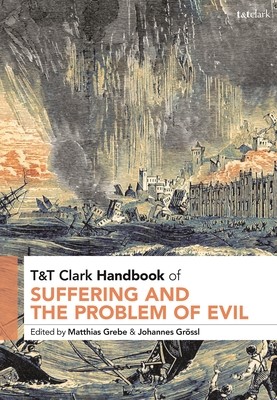
- We will send in 10–14 business days.
- Publisher: T&T Clark
- ISBN-10: 0567682439
- ISBN-13: 9780567682437
- Format: 17 x 24.4 x 4 cm, kieti viršeliai
- Language: English
- SAVE -10% with code: EXTRA
T&t Clark Handbook of Suffering and the Problem of Evil (e-book) (used book) | bookbook.eu
Reviews
Description
The T&T Clark Handbook of Suffering and the Problem of Evil provides an extensive exploration of the theology of theodicy, asking questions such as should all instances of suffering necessarily be understood as evil? Why would an omnipotent and benevolent God allow or perpetrate evil? Is God unable or unwilling to reduce human and non-human suffering on Earth? Does humanity have the capacity to exercise a moral evaluation of God's motives and intentions?
Conventional disciplinary boundaries have tended to separate theological approaches to these questions from philosophical ones. This volume aims to overcome these boundaries by including biblical (Part I), historical (Part II), doctrinal (Part III), philosophical (Part IV), and pastoral, interreligious perspectives and alternative intersections (Part V) on theodicy. Authors include thinkers from analytic and continental traditions, multiple Christian denominations and other religions, and both established and younger scholars, providing a full variety of approaches. What unites the essays is an attempt to answer these questions from the perspective of biblical testimony, historical scholarship, modern theological and philosophical thinking about the concept of God, non-Christian religions, science and the arts. The result is a combination of in-depth analysis and breadth of scope, making this a benchmark work for further studies in the theology of suffering and evil.EXTRA 10 % discount with code: EXTRA
The promotion ends in 21d.12:08:55
The discount code is valid when purchasing from 10 €. Discounts do not stack.
- Publisher: T&T Clark
- ISBN-10: 0567682439
- ISBN-13: 9780567682437
- Format: 17 x 24.4 x 4 cm, kieti viršeliai
- Language: English English
The T&T Clark Handbook of Suffering and the Problem of Evil provides an extensive exploration of the theology of theodicy, asking questions such as should all instances of suffering necessarily be understood as evil? Why would an omnipotent and benevolent God allow or perpetrate evil? Is God unable or unwilling to reduce human and non-human suffering on Earth? Does humanity have the capacity to exercise a moral evaluation of God's motives and intentions?
Conventional disciplinary boundaries have tended to separate theological approaches to these questions from philosophical ones. This volume aims to overcome these boundaries by including biblical (Part I), historical (Part II), doctrinal (Part III), philosophical (Part IV), and pastoral, interreligious perspectives and alternative intersections (Part V) on theodicy. Authors include thinkers from analytic and continental traditions, multiple Christian denominations and other religions, and both established and younger scholars, providing a full variety of approaches. What unites the essays is an attempt to answer these questions from the perspective of biblical testimony, historical scholarship, modern theological and philosophical thinking about the concept of God, non-Christian religions, science and the arts. The result is a combination of in-depth analysis and breadth of scope, making this a benchmark work for further studies in the theology of suffering and evil.

Reviews